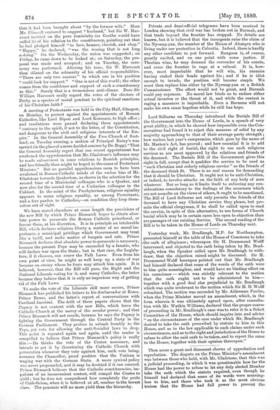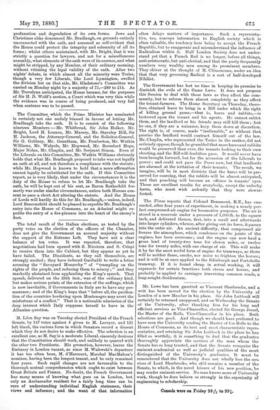Then arose a great and dissonant chorus of approbation and
reprobation. The dispute on the Prime Minister's amendment was between those who held, with Mr. Gladstone, that this was a judicial proceeding, in which it was questionable how far the House had the power to refuse to let any duly elected Member take the oath which the statute required, even though he himself had declared that some of its words were meaning. less to him, and those who took it as the most obvious truism that the House had full power to prevent the profanation and degradation of its own forms. Jews and Christians alike denounced Mr. Bradlaugh, on grounds entirely unconnected with the oath, and assumed as self-evident that the House could protect the integrity and solemnity of all its forms ; whilst others maintained, with Mr. Bright, that it was strictly a question for lawyers, and not for a miscellaneous assembly, what elements of the oath were of its essence, and what might be stripped, by any Member, of their ordinary meaning, without vitiating the legal validity of the oath. After two nights' debate, in which almost all the minority were Tories, though a very few Liberals, like Lord Lymington, swelled the division list on that side, Mr. Gladstone's Committee was carried on Monday night by a majority of 75,-289 to 214. As Mr. Trevelyan anticipated, the House became, for the purposes of Sir H. D. Wolff's motion, a Court which was very thin while the evidence was in course of being produced, and very full when sentence was to be passed.



































 Previous page
Previous page